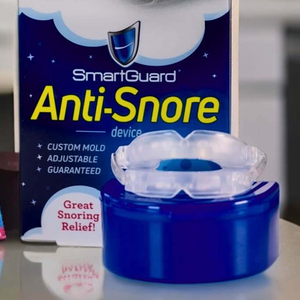Apr 09, 2024
EVERYTHING YOU WANTED TO KNOW ABOUT SLEEP DEPRIVATION, BUT WERE AFRAID TO ASK
You have stumbled onto an article that delivers some not-so-comfortable news for those of us who tend to “burn the candle at both ends,” meaning up late and up early. Common in the “dog-eat-dog” world, millions of us want to squeeze every waking moment out of the given 24 hours for business success, school mastery, entertainment, or relationship building. The problem is that we humans don’t typically function at our best without a proper amount of sleep, and countless studies point to the deleterious and dangerous effects of sleep deprivation: respiratory infections, headache, fatigue, mistakes at work, lower sex drive, slow reactions, napping when forbidden, auto-immune disorders, weight gain, mental health issues, high blood pressure, and moodiness, just to name a few. Some issues are acute and short-term; others become chronic and long-term.
A SCARY THOUGHT ABOUT AUTOIMMUNE DISORDERS
Sleep deprivation can have a negative impact on many aspects of our lives, especially the immune system, which can lead to an increased risk of developing autoimmune disorders. The immune system is responsible for protecting the body against harmful pathogens and infections; however, when the immune system is weakened or compromised, it can become more susceptible to autoimmune diseases, such as lupus, multiple sclerosis, Crohn's disease, rheumatoid arthritis and many others. Sleep deprivation can cause an imbalance in the immune system, leading to unhelpful inflammation and other immune-related problems; and sometimes the immune system overreacts by attacking the body’s normal tissue, such as joints and organs. It’s similar to the body’s reaction to a foreign object—a bullet, a sliver, a newly transplanted part. A person’s immune system attacks and tries to “wall off” or kill the object so it is contained and can’t do more damage. Getting enough good sleep is critical. The National Sleep Foundation recommends between 7 and 9 hours of sleep per night for the majority of adults.
STRESS AND COMMITMENTS FOR TEENAGERS
Having worked as an educator, I have seen several cases where high schoolers are so devoted to their sports or dance teams that they sacrifice the much-needed sleep to make those early workouts or practices. Indeed, It’s a challenge for teens and young adults to get to bed by 8 or 9pm, especially when in a lively family setting or dorm room, not to mention at social activities or studying for tests. The 10:00pm bedtimes and 4:30am up times allow woefully insufficient sleep for 90% of those kids. Unfortunately, health issues —sometimes serious—abound in this preventable scenario. To be sure, genetics plays a role in a person’s susceptibility to illness from sleep deprivation.
Symptoms of autoimmune diseases vary depending on the type of disorder. The typical symptoms are fatigue, joint pain, and skin rashes. If you are experiencing any symptoms of autoimmune diseases, please consult with a healthcare professional for proper diagnosis and treatment. Also, consider your lifestyle and what influence it may have.
WAYS TO GET ENOUGH GOOD SLEEP
If you’re having trouble sleeping, here are some tips that can help:
- Avoid caffeine, alcohol, and large meals before bedtime.
- Stick to a consistent sleep schedule.
- Create a relaxing bedtime routine.
- Limit exposure to bright screens and blue light in the evening.
- Exercise regularly and maintain a healthy diet
- Put away smartphones and tablets.
- If you wake up in the night, avoid looking at the clock.
HOW MUCH SLEEP IS RECOMMENDED?
After an extensive study of age groups over a two-year period, the Sleep Foundation released the following guidelines:
- Adults, 65+ years: 7 to 8 hours.
- Adults, 26 to 64 years: 7 to 9 hours.
- Young adults, 18 to 25 years: 7 to 9 hours.
- Teenagers, 14 to 17 years: 8 to 10 hours.
- School-aged children, 6 to 13 years: 9 to 11 hours.
- Preschool children, 3 to 5 years: 10 to 13 hours.
- Toddlers, 1 to 2 years: 11 to 14 hours.
- Infants, 4 to 11 months: 12 to 15 hours.
- Newborns, 0 to 3 months: 14 to 17 hours.
Doctors acknowledge individual differences and exceptions, but they are rare. What is key are the genetic, environmental, and behavioral factors that determine how much sleep is right for you.
WHAT HAPPENS WITHOUT ENOUGH SLEEP?
Besides the usual runny nose on the next day, here are some cognitive and emotional issues to remember.
- Greater likelihood for car and work accidents.
- Relationship stress. It can make you feel moody, making it more likely to have conflicts with people in your life.
- Impaired alertness. Even missing as little as 1.5 hours can have an impact on your focus at work, school, or driving.
- Excessive daytime sleepiness. It can make you very sleepy and tired during the day.
- Impaired memory. Lack of sleep can affect your ability to think, remember and process information.
- From sleep deprivation, the hormone Cortisol rises and breaks down collagen, the substance that keeps skin smooth and flexible. This means MORE WRINKLES!
- Quality of life. You may become less likely to participate in normal daily activities or to exercise.







